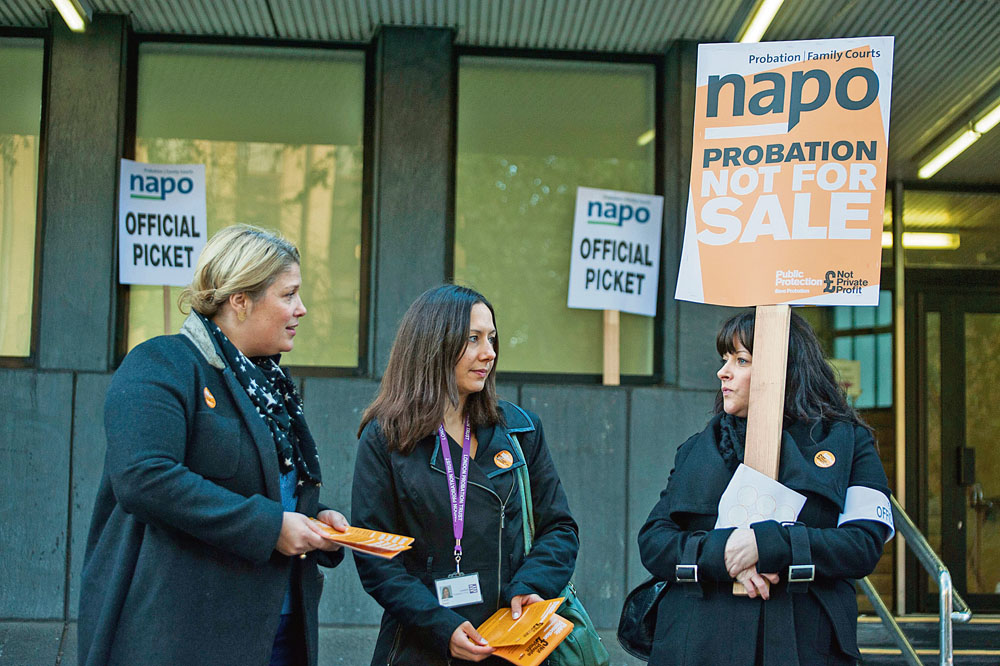Probation workers celebrate case management renationalisation
Chas Berry, chair, Napo union Kent, Surrey and Sussex branch (personal capacity)
Probation workers are celebrating a famous victory with the announcement that all case management in England and Wales will be renationalised from spring 2021.
This puts into reverse the disastrous part-privatisation carried out by Chris Grayling in 2014, reunifying community based offender management as a publicly owned service accounting for around 80% of staff.
The move is a huge climbdown for the Tory government who had been in denial about the scale of the problems facing the service and were preparing to re-tender contracts to new private providers. Mounting evidence of operational inefficiencies and spiralling costs put paid to these plans, however, with the probation chief inspector describing the current working model as “irredeemably flawed”.
In February this year, one company that ran three of the contracts went into administration leaving £1.2 million in debts to third sector providers.
The probation workers’ union Napo has played a key role in securing the reversal through an effective campaign of political lobbying and use of the media. It maintained the confidence of members through a consistent call for ‘reunification’, seeing off the attempt to bankrupt it through removal of check-off and eventually bucking a trend that would have put many small unions into terminal decline.
One major benefit will be the return to national collective bargaining for staff in the privately run ‘Community Rehabilitation Companies’ who have seen their pay and conditions decline in relative terms to their former colleagues in the state-run ‘National Probation Service’. Our priority must be to end the disparity and the blatant unfairness of a two-tier workforce.
Celebrations have been muted by the fact that ‘Community Payback’ (unpaid work) and ‘Offending Behaviour Programmes’ will remain in the private sector and be re-tendered under new contacts. But as Napo general secretary Ian Lawrence said: “Napo will continue to campaign to ensure that all of these services and the members who provide them are eventually transferred back into the public sector”.
While probation workers have almost universally welcomed the news, there is unease, not just about a further period of operational disruption while systems are stitched back together, but what a fully integrated publicly run probation service should look like.
Members don’t want the current ‘mixed model’ replaced by just a bigger version of the centrally driven and bureaucratically run National Probation Service. We want local accountability and a say in how the service we provide is run.
The bankruptcy of the current system is an opportunity for trade unionists and socialists to raise the question of workers’ control and the role of the community, including service users, in the provision and accountability of public services.








